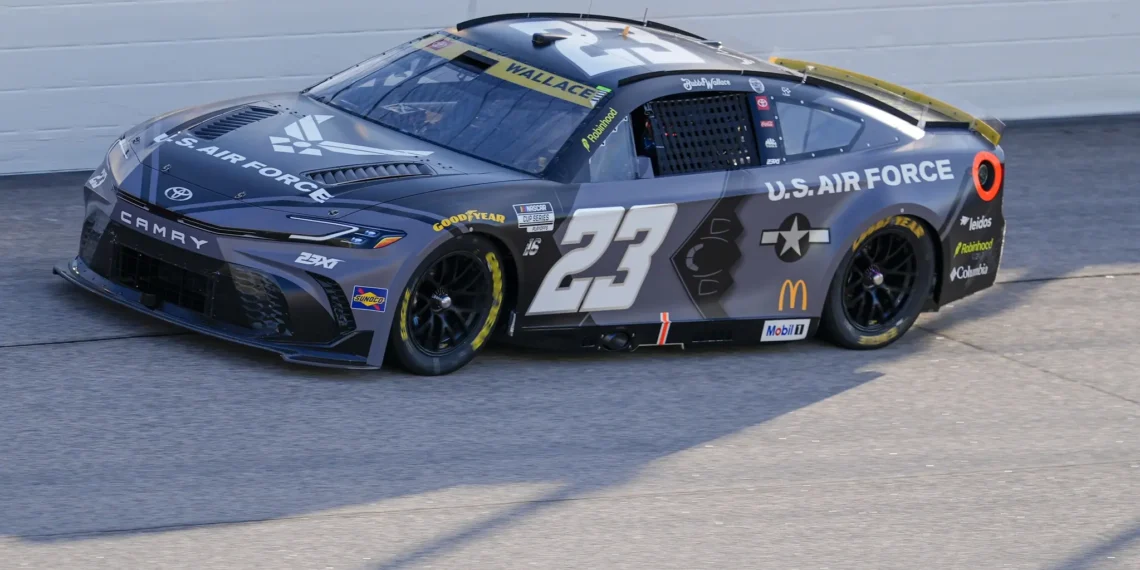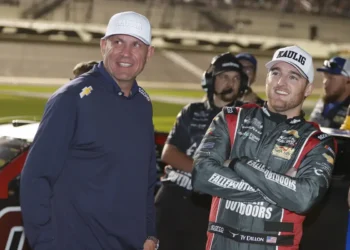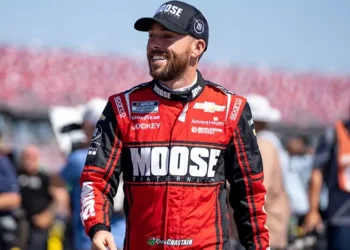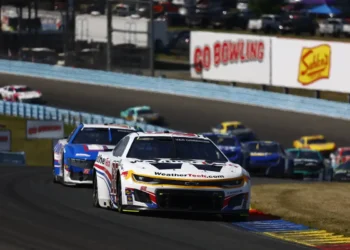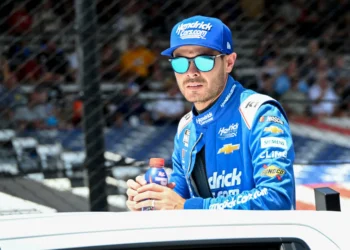Bubba Wallace’s Bold Vision: One Game-Changing Shift That Could Elevate Him Above NASCAR’s Elite
In a thrilling twist to the NASCAR season, Bubba Wallace has shattered expectations by making it to the playoffs for the very first time, not by the usual points accumulation but by clinching a staggering victory! His momentum hasn’t slowed down, as evidenced by his impressive P6 finish at Darlington and a solid P8 at Gateway in the initial playoff rounds. Now, as he gears up for the pivotal Round of 16 at Bristol, Wallace is making waves with his audacious predictions about NASCAR’s future and his own place within it.
In a revealing conversation with Jeff Gluck on the popular “12 Questions” segment, Wallace dropped a bombshell: a single transformative change could not only redefine NASCAR’s standing in the sports world but also propel him past well-known figures like Chase Elliott and Ryan Blaney. He highlighted a glaring disparity between NASCAR and motorsport giants like Formula One, where stars such as Lewis Hamilton and Max Verstappen bask in relentless media attention and fanfare wherever they go.
Wallace lamented the lack of “star power” in NASCAR, suggesting that even beloved drivers like Elliott and Blaney often go unnoticed outside the racetrack. “I think it’s star power, but I don’t know how to fix the star power,” he stated candidly. “You need an athlete where people want to tune in and watch how that person does.”
His ambition is palpable as he envisions a scenario where he could dominate the circuit by winning six out of nine consecutive races, a feat that would undeniably elevate his profile. “If you dropped the three names I just said, myself, Chase, or Ryan, in New York, I’m getting recognized first,” Wallace asserted, igniting a firestorm of debate about what it truly means to be a superstar in NASCAR.
The stakes are high, and Wallace knows that the key to breaking free from the confines of the sport’s “little bubble” lies in victory. “Yes, but it takes winning. I have to win to be able to do that, and not just one in every three years,” he emphasized, laying down a challenge to himself and his competitors.
Reflecting on the glory days of NASCAR, he noted how icons like Dale Earnhardt Sr., Richard Petty, and Jeff Gordon once commanded the spotlight, not just for their skills on the track but also for their larger-than-life personas. Today, however, that allure seems to have dimmed, overshadowed by the competitive balance introduced by modern racing dynamics and the depth of talent that now populates the field.
As Wallace boldly articulates his vision for NASCAR’s future, one can’t help but wonder: could this be the moment that reignites the spark of star power in the sport? With the potential for a new era on the horizon, all eyes will be on him as he seeks to not just participate in the race, but to become the face of NASCAR itself. The time for change is now—will Bubba Wallace lead the charge?

